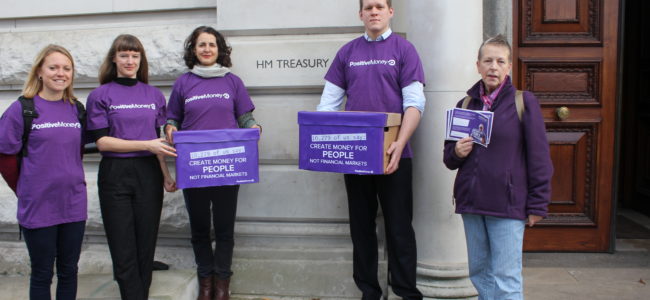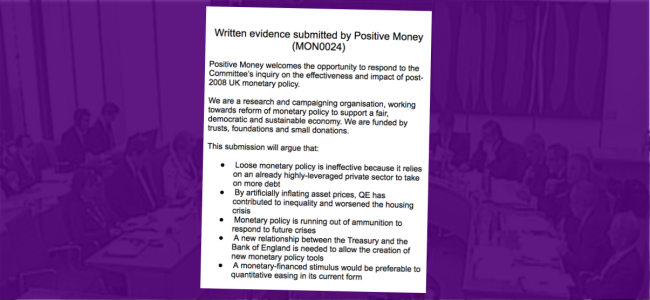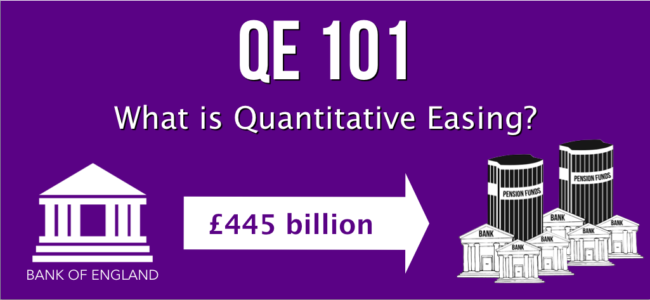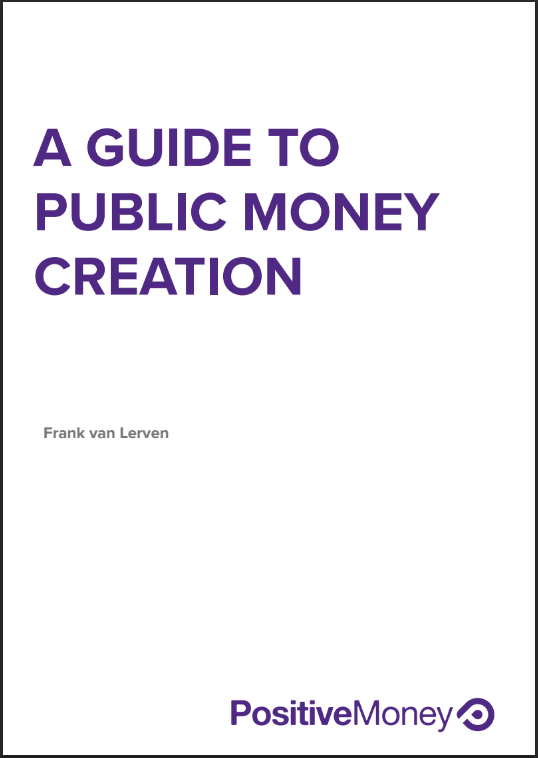The Bank of England’s quantitative easing policy has made the rich richer and left little for the rest of us. This needs to change.
Since 2009, the Bank has created £445 billion and used it to buy financial assets from private investors like pension funds and insurance companies – in a process known as quantitative easing or QE. This has pushed up the value of those assets, delivering a knock-on boost to property prices. The idea is that because the people who own assets will feel wealthier, they’ll be encouraged to spend more.
This is a just one particular form of the “trickle-down effect”. But it doesn’t work.
![2016-11-03-PHOTO-00000046[1]](https://positivemoney.org/wp-content/uploads/2017/07/2016-11-03-PHOTO-000000461.jpg)
The money created through QE ends up in property and financial markets, and does little to support investment in businesses which create jobs. So even though the Bank has been creating billions of pounds, wages have remained low, and ordinary people don’t see the benefit.
And because assets are disproportionately owned by the rich, QE has benefited the top 5% of people by as much as £100k each. Higher asset prices mean more financial instability and inequality, as well as higher house prices for everyone.
And yet the Bank of England has alternative powerful policy tools with the potential to support a stronger and fairer economy. Instead of pumping money into financial markets, it could be spent via the government into infrastructure, green technology, or as a direct boost to household finances.
This idea, known as QE for People, is gaining support among economists. QE for People would do much more to sustainably boost the productive economy, reduce inequality instead of increasing it, and provide us with the investment we need.

RESOURCES
Video: Why quantitative easing was a waste of £445bn

RESEARCH
A Guide to Public Money Creation Outlining the Alternatives to Quantitative Easing
Currently, there are a number of unconventional monetary policy proposals, also known as ‘Helicopter Money’, ‘Overt Monetary Finance’, ‘Strategic QE’, ‘Green QE’, ‘Green Infrastructure QE’, ‘People’s QE’ and ‘Sovereign Money Creation’. Our new guide will help you better understand ‘conventional’ QE, each of these various alternative proposals and its implications for the economy.


